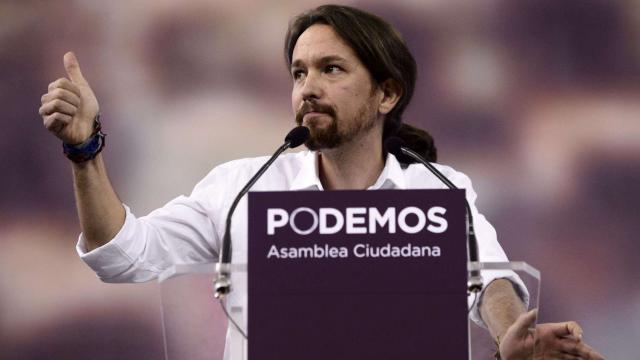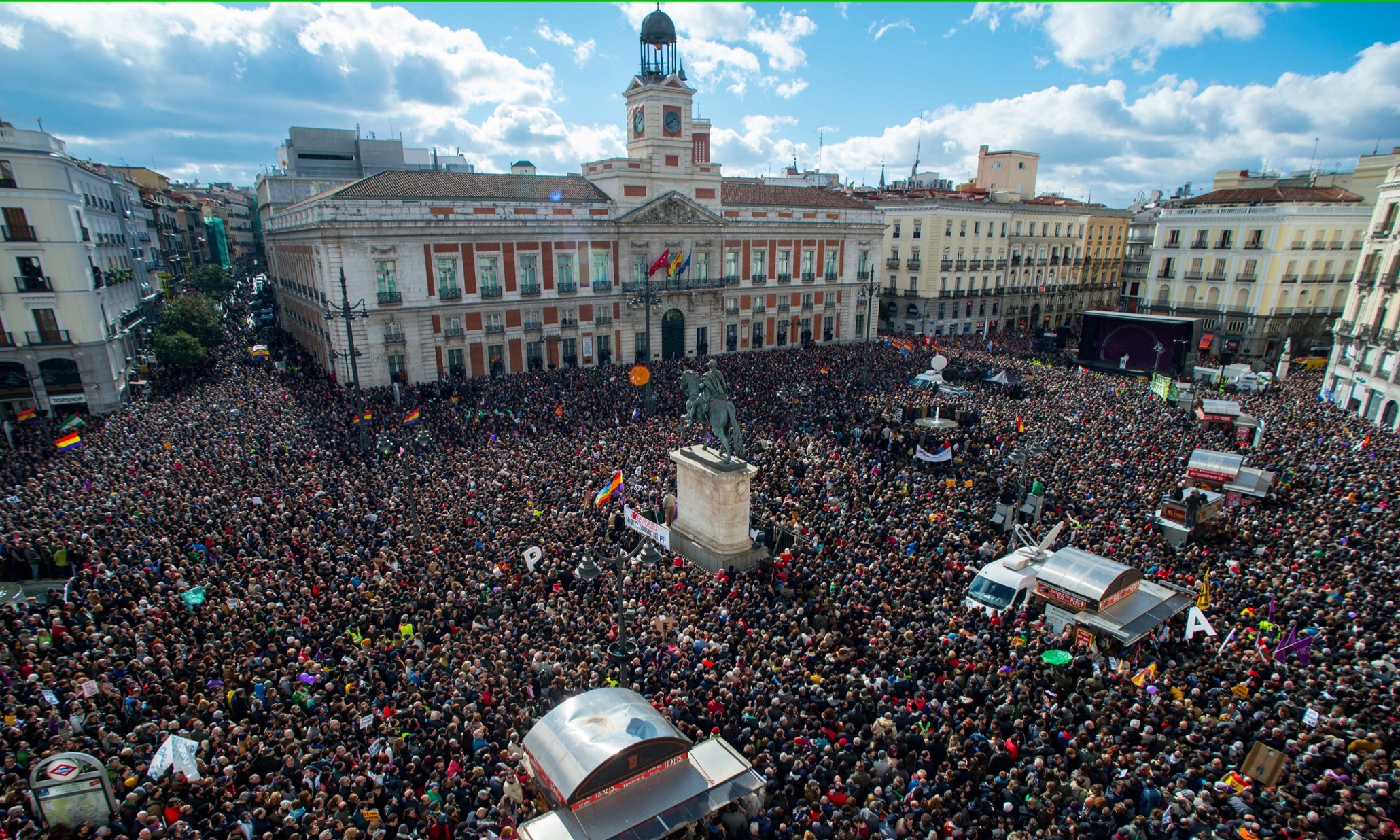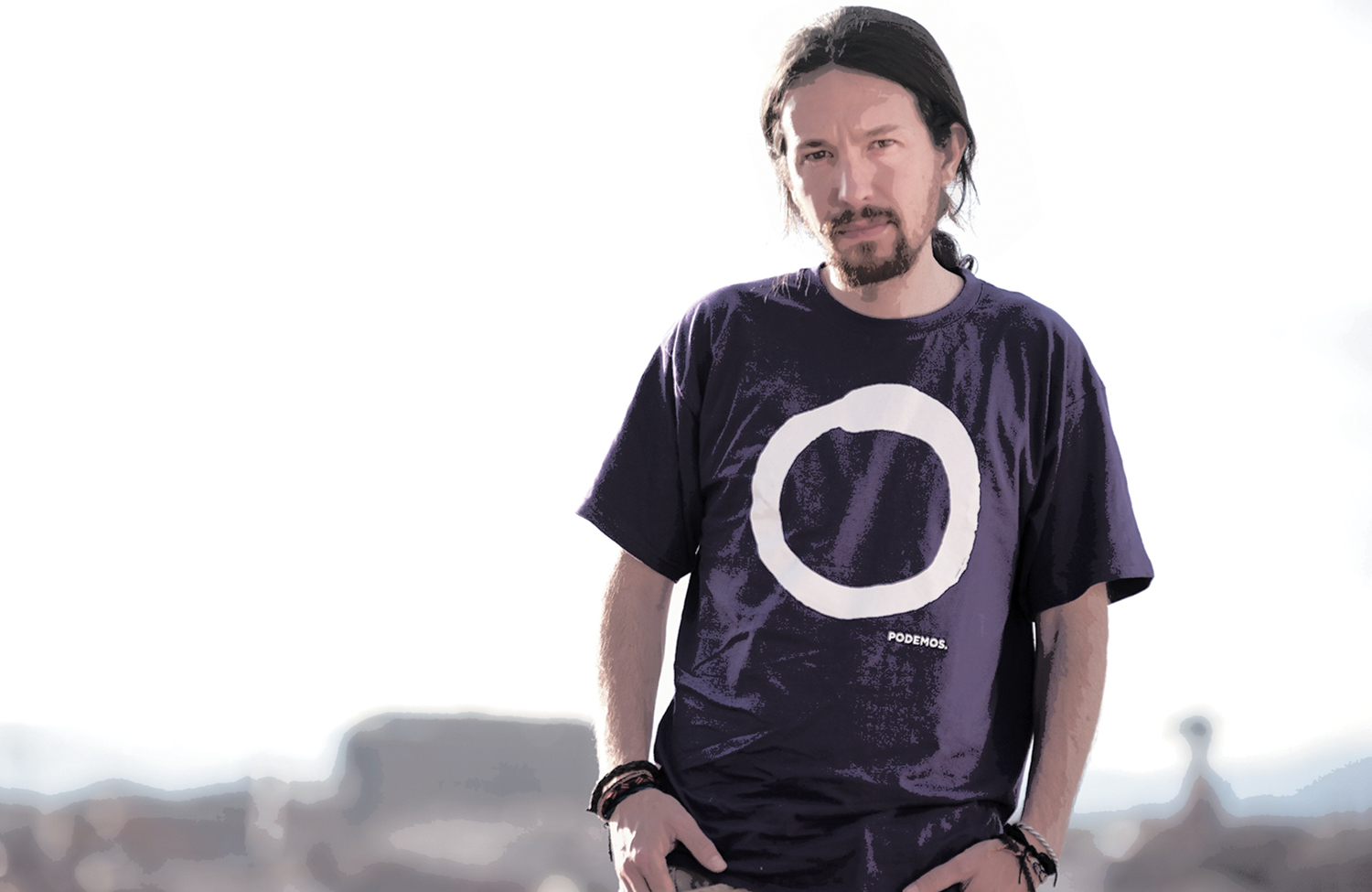
This is the second article in a two-part series looking at the changed political landscape in Spain ahead of Dec. 20 national elections. Read the first article here.
“If I was in the Spanish state I’d probably vote for Podemos," explains Barcelona resident Isabel Galera, simply because "the other parties are neo-fascists.”
With Spain’s 2015 national elections looming this Sunday, Dec. 20, descriptions of Podemos as the "best of a bad bunch" have become more common – resonating especially loudly with the country's vibrant citizen movements.
Launched last year, the Podemos party, led by Pablo Iglesias, gained 8% in European Parliamentary elections and drew global attention with its radical political promises. But now, the ideology professed by leaders of Podemos is looking to more Spaniards like hype rather than substance.
Galera, who supports independence for her native Catalonia, says she lost trust with Podemos due to the party constantly changing its position on whether her region should be independent. Podemos first supported a referendum for Catalonia. Then it announced it was against the idea. Later it said the whole of Spain should get to vote on Catalan independence. Finally it returned to supporting the region's own call for a referendum.
But wider opinion polls also show Podemos is fading for other reasons. Six months ago, the party regularly took a top position, with 30% approval and higher. Today, its popularity is half that, representing disappointment for many who hoped the party would seriously contend with the conservative Popular Party and the more left-leaning Socialist party (PSOE). Instead, another new party, the populist Ciudadanos, has grown in strength this year, challenging Podemos for the third slot.
Podemos has suggested that its direct democracy model could solve today’s economic and political crises. Its leader, Iglesias, writes: “The principal social expression of this regime crisis was the 15-M movement, the vast indignado mobilization which, starting on 15 May 2011, occupied city squares across Spain for weeks on end. Its principal political expression has been Podemos.”
It's still early to say. But to many, that promise hasn't yet lived up in practice. And nearly five years after the popular 15M rebellion helped shift Spain's social and political landscape, the question of "when" is on many people's minds.
Retracing the 15M Phenomenon
In May of 2011, millions took over Spanish squares with slogans like, “We are not merchandise at the hands of politicians and bankers.” The protest for Democracia Real Ya, or Real Democracy Now, began with an occupation of Puerta del Sol in Madrid on May 15, and heavy police repression catalyzed the movement nationwide.
The numbers involved in protests and occupations over the next two months were massive. An estimated 1.5 million Spaniards were very active, 8.5 million participated, and over 30 million, or 78% of the population, supported the 15M movement’s aims.
The origins of 15M run broad and deep. The Spanish government's response to the 2004 Madrid train bombing – to blame the Basque separatist movement ETA, though everyone knew the attack was carried out by Jihadists – was one factor. The movement sometimes known as the Indignados (Indignants) was also fueled by outrage at the way Spanish society – and its youth especially – was asked to bear the burden of the banking crisis and EU-enforced austerity. 15M highlighted economic and political corruption by "la casta," the elite families that still govern the country, and gained traction after the pro-democracy Arab Spring.
Once it left the squares, the 15M movement's energy, ideals and model for direct democracy inspired many citizen initiatives, such as the debt audit platforms and the anti-eviction movement that led to activist Ada Colau's being elected as the mayor of Barcelona in June.
The various movements embodied the 15M message in many ways. They used an inclusive political approach, challenged sexism and favored a consensus decision-making model. They open-sourced information and used creative new forms of networking to build support and participation. At their core, the movements were about people reclaiming power – from mobilizing to stop evictions, to developing tools that audited local governments.
Why Podemos, For Some, Went From Promise to Disappointment
In contrast, Podemos was born from more academic roots. Early last year, some 30 intellectuals formed the party promising to win seats in EU elections. The campaign was amplified by a digital TV channel, La Tuerka, where Pablo Iglesias presented his political program. In May of 2014, Podemos shocked the nation by taking five of Spain’s 54 seats in the European Parliament. Their platform included canceling Spain’s illegitimate debt and providing universal basic income.
But a year and a half on, those pledges appear to have been watered down. The party no longer speaks of a citizen's income, nor does it call for a debt audit to cancel Spain's debt.
In Madrid, Barcelona and Andalusia, Occupy.com spoke with activists involved in the debt movement, the radical independence movement, and new civil movements that have reclaimed mayoral seats and local councils, as well as the anti-eviction movement. Among most of them, there were strong sentiments that Podemos has moved away from 15M and its initial platform for change. The party is also absent from the streets and assemblies.
Emma Avilés firstly welcomed the emergence of Podemos in her home city of Madrid. But she soon felt uneasy by the party's approach. She had engaged with 15M, and then with the citizens’ debt audit platform, PACD, in Barcelona. Podemos first presented itself as a direct democracy model, with open assemblies where anyone could participate.
But, says Avilés, “We tried to put forward proposals and realized you needed to be high up to make important decisions. The participation from outside was just make-up. It did not go anywhere.”
This wasn't the only way that Podemos shifted from its original course, she says. The party's election leaflet named PACD as a supporter without getting the group's consent. Likewise, she says, Podemos listed individual people as supporters online without gaining their approval.
Avilés complains this created extra work for activists, who had to battle Podemos in the propaganda arena; instead of collaborating with allies, “they tried to position themselves as the leader of a decentralized network.”
In contrast, other Spanish social movements born from 15M have been central to electing progressive mayors like Colau in Barcelona and Manuela Carmena in Madrid. While Podemos remains largely Madrid-focused, on a national level it is running campaigns in confluence with other local citizens' initiatives.
By staying true to 15M values and principles, various campaigns were able to bring large numbers of activists into the tent. In Madrid, this led to Carmena, campaigning with almost no budget, beating a conservative who ran a no-expense-spared campaign.
“If Podemos had kept the radical ideas from the European elections [for the state elections], they would have kept us on their side, which would have massively helped their 2016 election campaign,” adds Avilés. Reflecting on the last five to seven years, she says Spanish society has gone through a massive shift in thinking – partly due to the energy that gave rise to Podemos. But it still has a long way to go.
“Podemos have really not understood what this change is about," she says. "We want new models, structures and ways of thinking. They took our direct democracy promises and launched with a project they had already been working on. And at the end of the day they look like a traditional party.”
3 WAYS TO SHOW YOUR SUPPORT
- Log in to post comments













